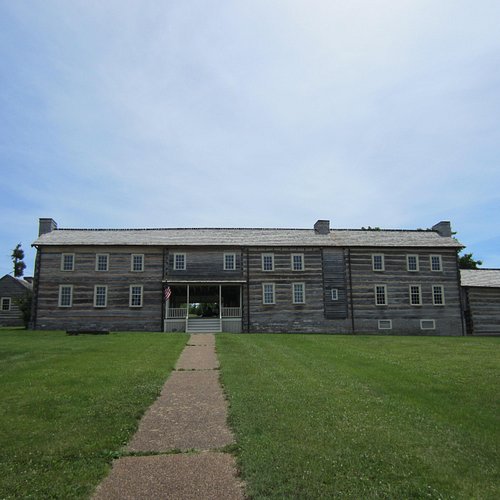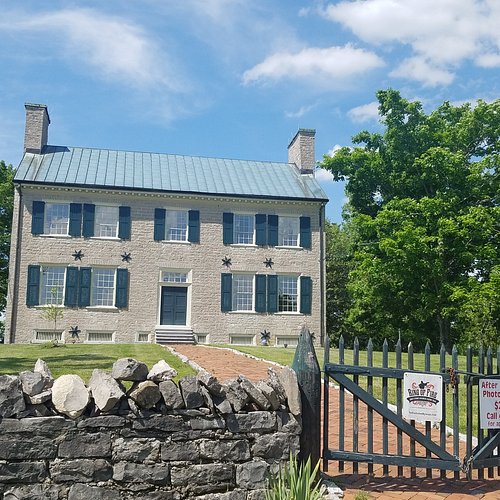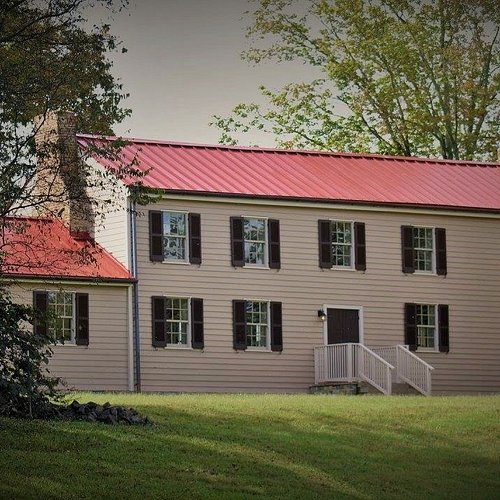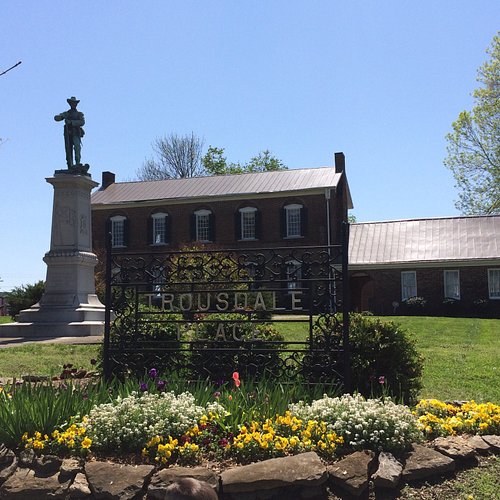6 Historic Sites in Sumner County That You Shouldn't Miss
Discover the best top things to do in Sumner County, United States including Wynnewood State Historic Site, The Bridal House, Cragfont State Historic Site, Historic Rose Mont, Douglass-Clark House, Trousdale Place.
Restaurants in Sumner County
1. Wynnewood State Historic Site
Overall Ratings
5.0 based on 16 reviews
Wynnewood is a state historic site that includes the largest historic log structure in Tennessee. Built in 1828 by the Wynne family, the structure served as the Castalian Springs Resort for stagecoach travelers and tourists interested in the sulphur mineral springs and their reported medicinal powers, located at the base of the hill. The property came to Mrs. Almira Wynne as a bequest from her father, General James Winchester of nearby Cragfont. Almira and her husband AR moved the family into the resort and AR left his wife the management of operations while he traveled for business. The resort was also home to approximately 20-30 enslaved men, women, and children who worked at the resort and the agricultural operations on site. The Civil War ended the resort's operations, and they were not picked up again until a resurgence in 1899. The site is currently owned by the Tennessee Historical Commission and managed by nonprofit Historic Castalian Springs.
Reviewed By jjphillyTN
well preserved and informative and educational! strong recommend to anyone interested in the local history of first settlements in the area.
2. The Bridal House
Overall Ratings
5.0 based on 1 reviews
3. Cragfont State Historic Site
Overall Ratings
4.5 based on 28 reviews
General James Winchester's grand frontier home, Cragfont is located on the original road from Knoxville and the East coast, The house stood as a grand and prominent landmark for those making their way west. Originally hunting grounds for local native American peoples, 33 year old James and his brother George arrived in 1785 and quickly established a fort on land given for their service in the American Revolution. By 1802, Winchester built his home Cragfont, occupied by his growing family and the enslaved community until 1863. Following the Civil War, the remaining family members sold the home and in 1957, it became a state historic site.
Reviewed By yolondar982
Want to learn more about Tennessee history, then visit Historic Cragfont. The grounds are well kept and showcases an absolutely beautiful scene of nature. The greeters (volunteers) are very knowledgeable and ready to assist guest and answer any of your questions. Black History may not be taught in school but a visit to Cragfont may enlighten you more to the role of African Americans in Tennessee.
4. Historic Rose Mont
Overall Ratings
4.5 based on 3 reviews
Reviewed By Mudsocks
We had a most delightful tour today, thank you Eli and Cass!! Learned so much, inside and out, and even toured the “haunted room”. This is not a “house-museum”. While being maintained and preserved as an historic mansion, it’s at the same time open for use by private events (weddings, derby parties, season related themes). Just go.
5. Douglass-Clark House
Overall Ratings
4.0 based on 9 reviews
The Douglass-Clark House is a historic site dedicated to sharing the multifaceted history of Sumner County and its past residents. Initially built as a home for Elmore Douglass and his family around 1786, the house was jointly used as one of the county's earliest courthouses between 1788-1790. The Clark family was the next generation to occupy the house and they witnessed the declaration of the Civil War in 1861, followed by four of their own enlisting on behalf of the Confederate cause. Slavery was also deeply intertwined with the history of the Douglass-Clark House as documentation listed enslaved persons living at the property as early as 1790. We invite you to visit the Douglass-Clark House to hear the stories of those generations and reflect upon how their lives shaped our world today.
Reviewed By wmloyd4855 - Pleasant View, United States
We discovered the Douglass-Clark House in Gallatin, TN as part of our quest to find the best off-the-beaten-path gems in Tennessee. This restored historic home/court house dates back to the 1780s but has only recently been restored. Although somewhat sparse when it comes to furnishings and artifacts, the house is nonetheless a marvel of period restoration. But the real treat of this mini-museum was the docent, Andrew, who has a wealth of knowledge about the house, the families' heritage, and the history. Oh, does he know his history! Andrew was able to speak extemporaneously to a fine degree of detail about the Douglass and Clark families, all their kids, the four brothers who served in the Civil War (and what happened to them), the house and how it evolved over time and about many other aspects of the Civil War in Tennessee. He should be a professor at a prestigious university (and maybe that's his goal?). The most surprising tidbit of history that we learned was that President Andrew Jackson actually practiced law in the house shortly after he passed the bar. If you like history, you'll love the Douglass-Clark House.
6. Trousdale Place
Overall Ratings
3.5 based on 4 reviews
Trousdale Place is the handsome home of Gov. William Trousdale. Come tour the home proudly placed on the National Register of Historic Places and Tennessee Civil War Trails while also taking in the sights and shopping of downtown Gallatin. It is located two city blocks west of the Gallatin, Tennessee Public Square. This historic home was built circa 1813 by John H. Bowen, a local attorney and member of Congress. Bowen died in 1822, and the house was later acquired by Governor William Trousdale. The city of Gallatin was developed on part of the original North Carolina land grant #1 awarded to Captain James Trousdale, Governor Trousdale’s father, for his service in the Revolutionary War. In 1812, lots were sold for the construction of the jail, courthouse and other Gallatin city buildings. William Trousdale served in the Creek Indian War, the War of 1812 under Andrew Jackson at Pensacola and New Orleans, the Seminole War of 1836 in Florida, and later was made a brigadier general in the United States Army for his gallantry in the Mexican War. He was one of a very few who served in four wars of the first half of the nineteenth century. Trousdale became a member of the Tennessee State Senate in 1835 and was elected Governor of Tennessee in 1849. He later served as United States Minister to Brazil from 1853 to 1856 during the Franklin Pierce administration. William Trousdale died at Trousdale Place in 1872, and his wife, Mary Ann Bugg Trousdale, continued to live there until her death a decade later, when the home passed to their son, Julius. Julius was a veteran of the Confederate Army and later speaker of the Tennessee House of Representatives. Governor Trousdale's oldest son, Charles, accompanied his father as an aide when Governor Trousdale was appointed minister to Brazil. Charles became a lawyer and while serving in the Confederate States Army, he lost a leg at the Battle of Chickamauga. Both Julius and his only living child, Mary, died in 1899. In 1900, Annie Berry Trousdale, daughter-in-law of William Trousdale, deeded the home to the Clark Chapter #13 of the United Daughters of the Confederacy to honor all veterans and in particular, veterans of the Confederacy. Then the home became known as Trousdale Place. Sumner County supplied the Confederate States Army with approximately 3,000 soldiers. To memorialize the Trousdale’s military history and the service of these Confederate soldiers, a monument was erected on the front lawn of Trousdale Place on September 19, 1903. In 1979, the Sumner County Museum Association was granted permission by Clark Chapter #13 UDC to build a museum on the property. Today, Trousdale Place is open for tours by reservation and is part of the Sumner County Tour program. The home and grounds make a rich atmosphere for photographs.






